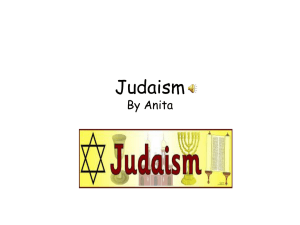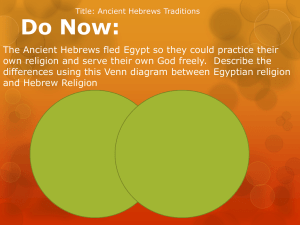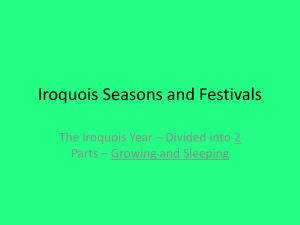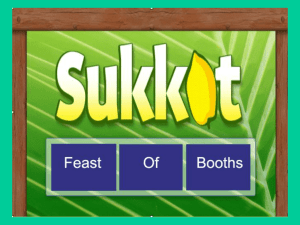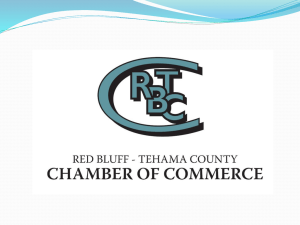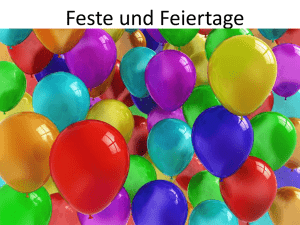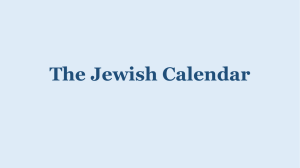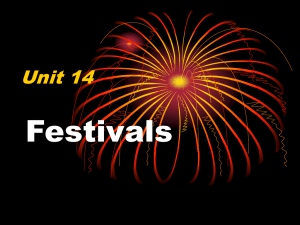Sukkot - International Fellowship of Christians and Jews
advertisement
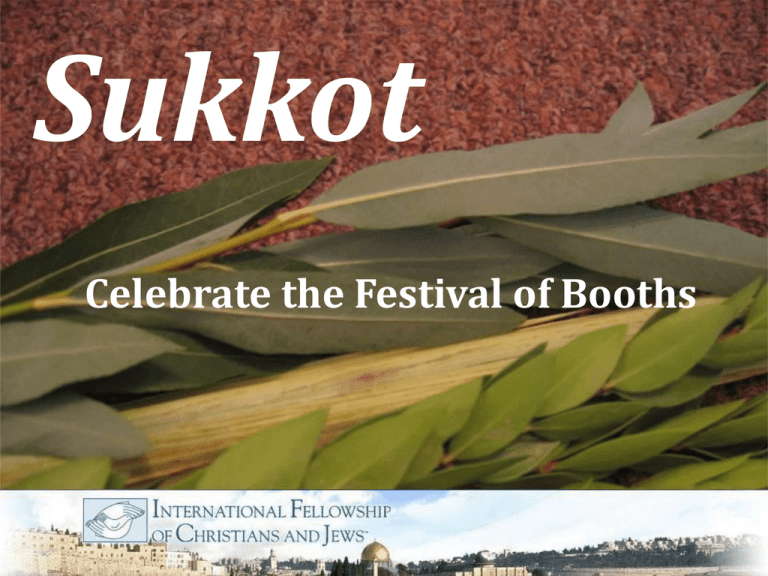
Sukkot Celebrate the Festival of Booths Background Sukkot was originally known as chag ha-asif, “the Festival of the Ingathering.” It was a celebration connected to the fall harvest (fruit harvest). Background The festival also commemorates the Israelites’ wandering in the desert for 40 years, during which time they lived in temporary sukkot, or “booths.” Leviticus 23:33–34 The LORD said to Moses, "Say to the Israelites: 'On the fifteenth day of the seventh month the LORD’s Feast of Tabernacles begins, and it lasts for seven days.'" Background Sukkot is also known as the “Festival of Booths” and the “Festival of Tabernacles.” The celebration begins four days after Yom Kippur and continues for eight days. Leviticus 23:41–43 Celebrate this as a festival to the LORD for seven days each year. This is to be a lasting ordinance for the generations to come; celebrate it in the seventh month. Live in booths for seven days: All native-born Israelites are to live in booths so your descendants will know that I had the Israelites live in booths when I brought them out of Egypt. I am the LORD your God. Celebration While the High Holy Days are a time of solemn and somber introspection, Sukkot is a time of joy, gladness, and celebration. (Sukkot is sometimes called "the Festival for Rejoicing.") Celebration The primary celebration involves the construction of a sukkah (singular form of sukkot), which is a hut made from improvised walls and an open roof covered by branches or leaves. Celebration The sukkah serves as a temporary shelter where meals are eaten during the days of the festival. Some pious Jews choose to sleep in the booths as well. Celebration The other mitzvah (commandment) associated with Sukkot is to rejoice before the Lord using the "Four Species“ (see Leviticus 23:40). The branches of three trees—including the willow, the myrtle, and the lulav (date palm)—are bound together with an etrog (a fruit similar to a lemon, also called a citron). Celebration Each day of Sukkot, the Four Species are waved in all four directions to symbolize that God is everywhere and all of our blessings come from Him. Celebration The seventh day of Sukkot is called Hoshana Rabbah, or "Great Hosanna." During the morning prayer service, the entire congregation joins in a seven-circuit procession around the synagogue while reciting prayers of hosanna, meaning “save us, please.” Celebration Sukkot is the only festival that includes an extra day, called Shemini Atzeret ("the assembly of the eighth day“—Leviticus 23: 36). This is recognized as a time when the Creator invites his people to "stay" and continue reveling in the joy of Sukkot. Celebration Simchat Torah ("rejoicing in the Torah") is a joy-filled ceremony that takes place on the day after Sukkot concludes. It marks the conclusion and new beginning of the annual cycle of Torah readings. Celebration Simchat Torah includes the hakafot procession, which is held both morning and evening. The Torah scrolls are marched around the reading table in the synagogue with singing and dancing. Application During Sukkot, Jews give thanks for their redemption from Egypt and for God's providence during the Israelites' years of wandering in the desert. By dwelling in exposed, insecure huts, Jews are reminded that true security comes only from being sheltered under God's protective wings. Psalm 27:5 For in the day of trouble he will keep me safe in his dwelling; he will hide me in the shelter of his tabernacle [sukkah] and set me high upon a rock. Application Sukkot tests our willingness to sacrifice comfort and convenience for the sake of obedience to God and His Word. At the same time, the festival is a time to give thanks for all material blessings and to recognize God as our true source. Application It is likely that the American Pilgrims were inspired by the Biblical account of the Festival of Tabernacles and used it as the model for their Thanksgiving holiday. Application The Festival of Tabernacles represents the Jewish quest for sovereignty over their ancient homeland and their longing for the coming of Messiah, who will bring redemption to the world. Amos 9:11–12 "In that day I will restore David's fallen tent. I will repair its broken places, restore its ruins, and build it as it used to be, so that they may possess the remnant of Edom and all the nations that bear my name," declares the LORD, who will do these things. Application Jews believe that Sukkot is the only biblical festival that Gentiles will be expected to observe in the messianic age. (See Zechariah 14:16.) For this reason, Jews pray on Sukkot not only for their own welfare, but for that of the entire world. Their prayers express longing for the redemption of all things and peace for all people. Zechariah 14:16 Then the survivors from all the nations that have attacked Jerusalem will go up year after year to worship the King, the LORD Almighty, and to celebrate the Feast of Tabernacles. International Fellowship of Christians and Jews 30 N. LaSalle Street, Suite 2600 Chicago, IL 60602-3356 www.ifcj.org
